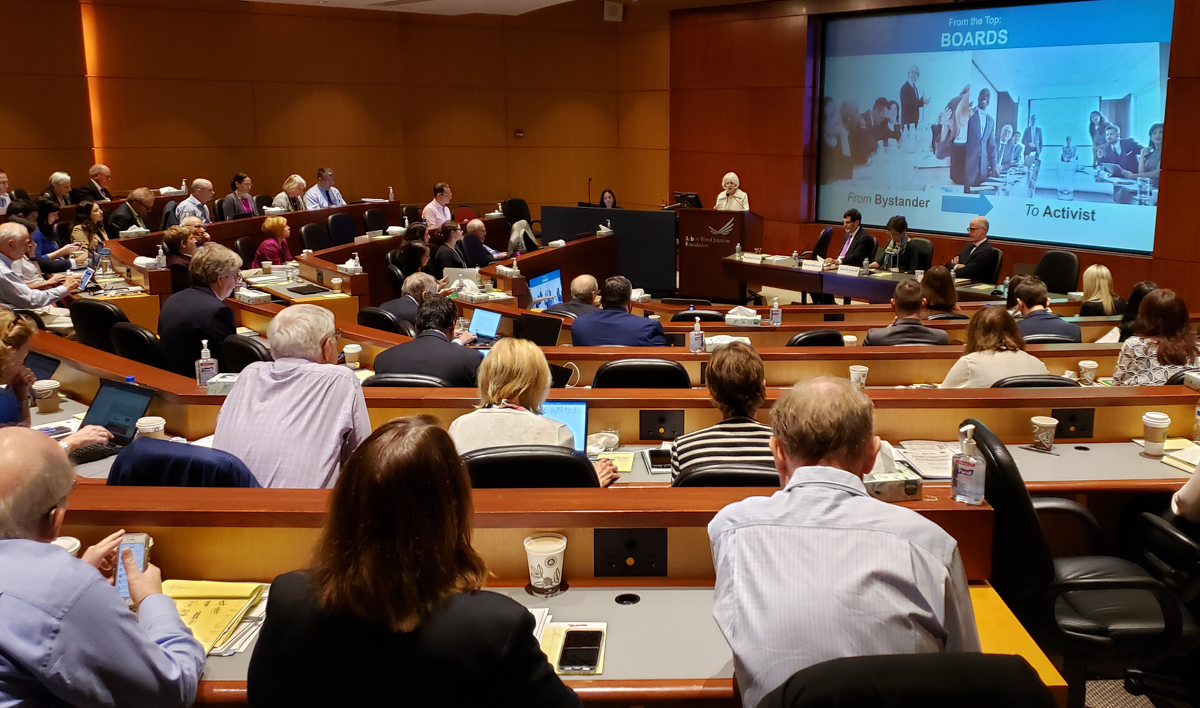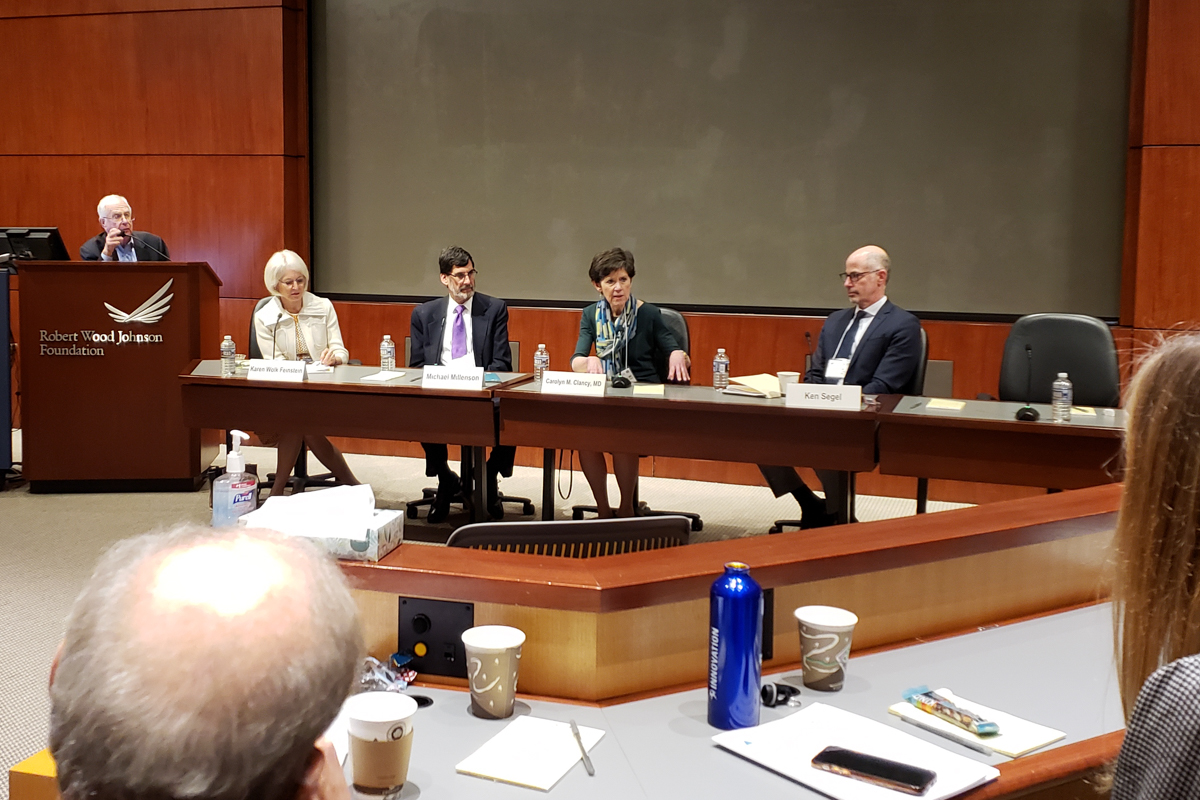Project & Program Updates
26th Princeton Conference Posits Where Next? Twenty Years After "To Err is Human"
Karen Feinstein again participated as a member of the planning committee and a session moderator at the 26th Annual Princeton Conference, held May 21-23, 2019. JHF has been a long-time sponsor of this important platform for bringing together clinical and policy experts to discuss key health policy issues.
This year attendees focused on topics such as the impact of federalism on U.S. health care, including its impact on Medicaid, issues in the Medicare program, state-level innovations including alternative payment models, and the opioid crisis.
In addition, led by Dr. Feinstein, the conference provided an opportunity to reflect on where we are in the U.S. twenty years after the publication of the ground-breaking To Err is Human: Building a Safer Health System estimated that nearly 100,000 American were dying as a result of preventable errors. Given the fact that, nearly two decades later, the devastating toll continues – hundreds of thousands of lives lost each year – Dr. Feinstein posited the question, "Where do we go from here?"
Challenging participants to look to other industries for models of how health care should respond to needless deaths, Dr. Feinstein pointed out that following the tragic Boeing 737 MAX 8 plane crashes that took the lives of more than 340 people, serious and significant action was taken. Planes were grounded across the world, an investigation began, whistleblowers came forward, and Boeing corporate leaders was targeted with responsibility for preventable harm. Dr. Feinstein related this example to health care, or rather how health care should react to problems. Pilots (the doctors) refuse to fly, and passengers (patients/consumers) refuse to purchase tickets (use faulty healthcare services), and airlines (healthcare purchasers) refuse to buy the planes.
Instead, the healthcare reality is that the equivalent of two full Boeing 737 MAX 8 planes crash every day as a result of medical errors and nobody is held accountable. Progress has been frustrating and slow-moving.
Dr. Feinstein noted that all the critical health stakeholders are bystanders, silent witnesses to harm who don't demand solutions. Blame for errors is a spectator sport and opinions abound: It's the culture, the complexity of medicine and the human body, our fee-for-service payment system, our inadequate measurement or IT systems. Rarely, however, do we assign responsibility to the healthcare systems that are ultimately responsible for healing and not harming.
The panelists who shared their frustrations and also their suggestions included longtime patient safety advocates: Michael Millenson, President of Health Quality Advisors LLC, a former Chicago Tribune journalist, has been writing about health care and patient safety for decades; Carolyn M. Clancy, MD, Deputy Under Secretary for Discovery, Education and Affiliate Networks at the Veterans Health Administration, who previously led the Agency for Healthcare Research and Quality whose mission is to produce evidence to make health care safer, and more reliably best-practice. Ken Segel, Managing Director of Value Capture / Value Capture Policy Institute, who has been working to improve patient safety since he became director of the Pittsburgh Regional Health Initiative in 1999.
At the conclusion of the session, Dr. Feinstein reminded the audience that improving patient safety going forward will require that none of us is a bystander. We need to be proud whistleblowers. To emphasize the point, session participants were provided with whistles – a reminder to feel empowered enough to break out of the bystander role.
Related Posts
By accepting you will be accessing a service provided by a third-party external to https://www.jhf.org/

